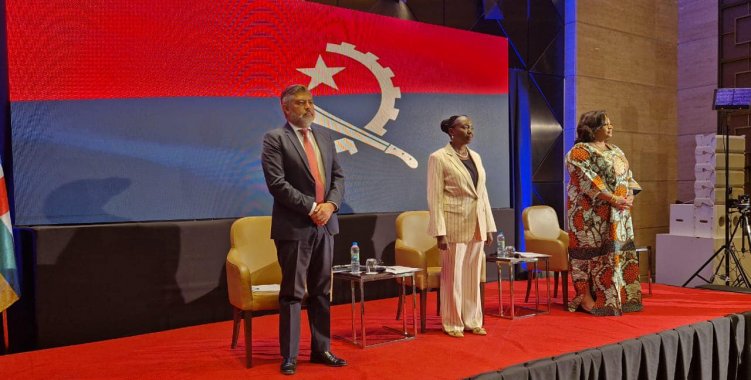Sílvia Lutucuta was speaking in Luanda, at the opening of the work of the regional technical subcommittees of the IV Phase of the Project to Strengthen the Disease Surveillance System in Central Africa IV phase (REDISSE IV), which has financing from the World Bank (WB).
According to Sílvia Lutucuta, the sub-region has the second largest forest in the world, after the Amazon, requiring greater attention, "as forests are important reservoirs of emerging and re-emerging infectious diseases".
The minister highlighted that this reality makes it essential to unite efforts to combat challenges that could compromise an effective response to health events increasingly associated with emerging zoonotic diseases, in addition to the need for coordination between public, animal and environmental health authorities in countries of the subregion.
The holder of the Health portfolio said that five of the 12 member states of the Economic Community of Central African States (CEEAC) – Angola, Central African Republic, Democratic Republic of Congo, Congo and Chad – benefit from financing from the World Bank (WB), within the scope of the REDISSE IV Project, which aims to support the strengthening of disease surveillance systems.
Sílvia Lutucuta considered the financing of the project "a commendable initiative" by the World Bank, pointing out "the significant progress" achieved in strengthening health systems, in particular in cross-border cooperation and surveillance, in laboratory capacity for diagnosis, in staff training, in the reorganization of animal health services and in environmental health initiatives.
"I believe there are sufficient reasons to continue this financing and collaboration strategy," she declared.
The BM representative for Angola, Juan Carlos Arvarez, highlighted that in the interim evaluation of the project, carried out a year ago, in Kinshasa, capital of the Democratic Republic of Congo, it was concluded that the priority actions defined for the participating countries have been implemented at a good pace.
According to Juan Carlos Alvarez, some of the participants will complete the projects in July this year and others saw the deadline extended until May 2025, as is the case in Angola, allowing them to complete all planned activities.
The official reiterated the importance of emergency preparedness and responses, recently identified as one of the World Bank's five priority programs to increase national investments and ensure that countries are better prepared to respond to emergencies.
"Countries in the African region still have a lot of work to do in this area, as was demonstrated in Angola during the recent joint assessment of the capabilities to implement the WHO [World Health Organization] International Health Regulations", he said.
Alvarez considered it essential that preparations for the new project begin as soon as possible to catalyze the gains of the REDISSE program and expand funding to areas of public health in need such as immunization and malnutrition.
"The new project could, for example, support the introduction of vaccines against the human papillomavirus, which causes cervical cancer, and against malaria," he noted.







